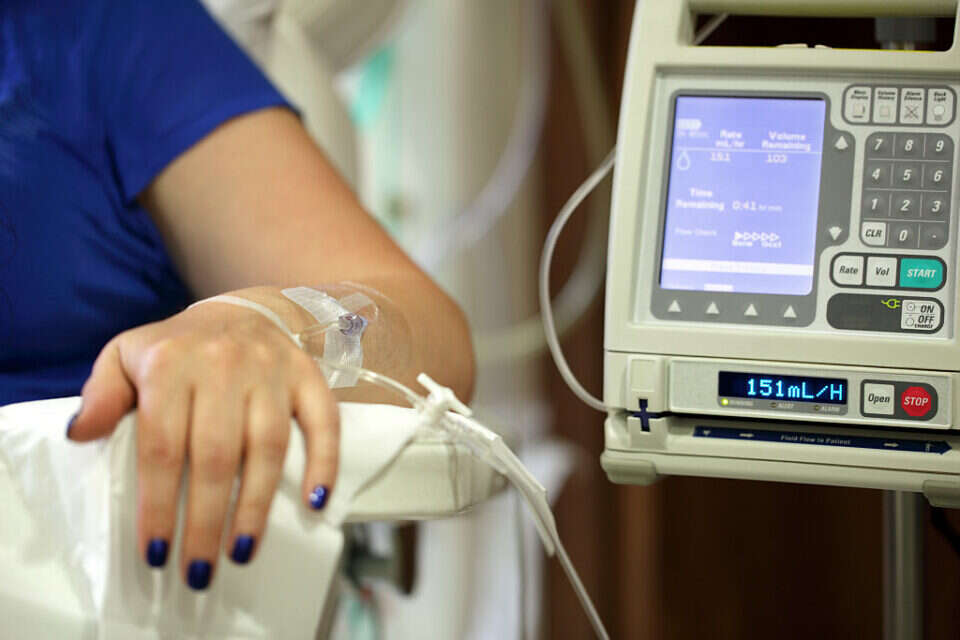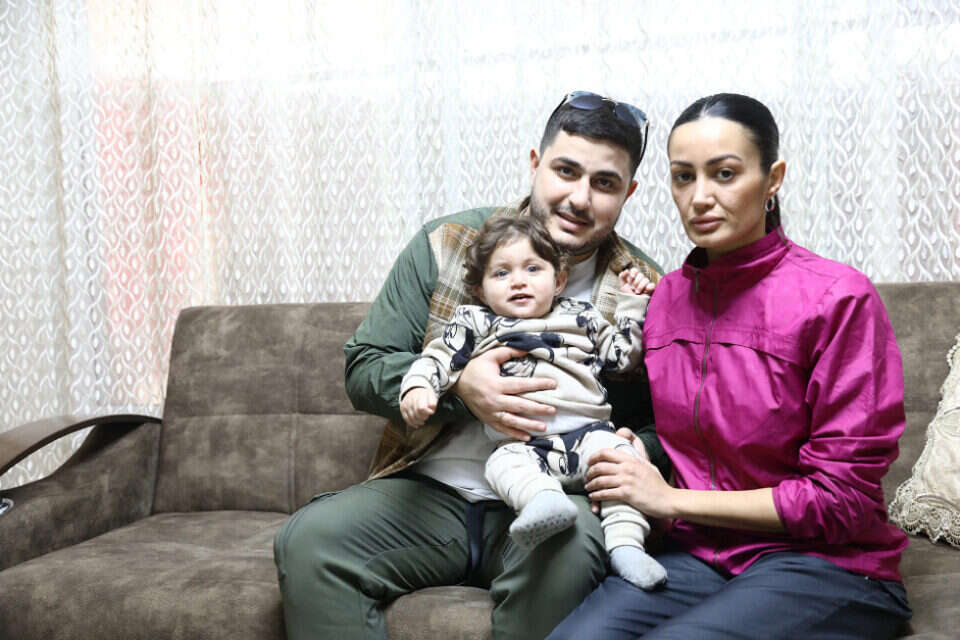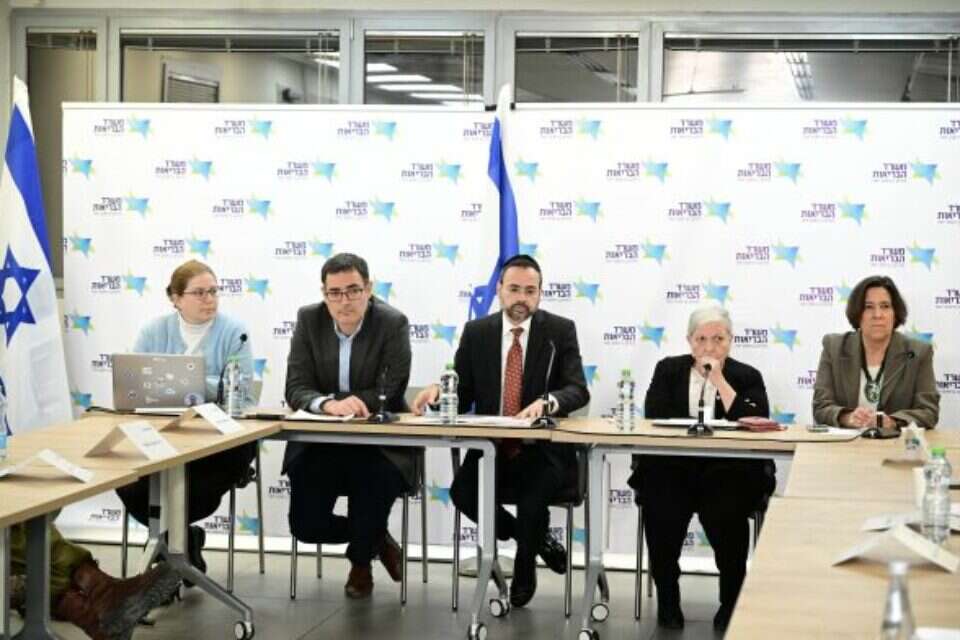The Michal and Eyal brothers will be saved from blindness and will receive appropriate treatment in the coming days • Orly will receive advanced ovarian cancer treatment that could save her life • Conversely, little Noya will be left without treatment for rare syndrome and the ill patient's diabetes will not get "artificial pancreas" to help him balance the disease
More than 210,000 people will benefit from the Medicines Committee's decisions, but there are also many patients who remain unanswered and treatment for their illness will not be included in the public basket.
Photo: Ami Shamir
Eyal (8) and Michal (6) Kebsa are native-born brothers suffering from the rare eye disease RP (Retinitis Pigmentosa), in which the retinal light receptors are gradually impaired. The two, whose eyesight is deteriorating day by day, will report to their parents at the clinic at Hadassah Ein Kerem Hospital this Sunday for treatment.
The Eyal brothers and Michal Cabasa. Receive eye disease treatment // Photo: Dudu Greenshpan
"We have been following the discussions impatiently and we are feeling in the clouds," says their father, Aaron Cabse, who has even approached an exceptional committee in an attempt to get the treatment even earlier. "By God, the children will receive the treatment. This means my children will be saved from blindness. We are very excited and the children are looking forward to it. For a long time, we were stressed and followed the changes and decisions to know whether the treatment would go into the basket or not. We were optimistic and I was glad that all the efforts The decision makers realized that this drug was important, saving eyes and doing the work. The sooner the treatment is given - the better. It is a disease in which the visual condition deteriorates rapidly. "
Another happy patient following the drug basket update is Orly Safraf, 55, of Hod Hasharon, who had ovarian cancer three years ago. "My sister had cancer two years before me, so I already knew that I was a carrier of a mutation in a gene called BRCA," shares Zruff. "Mutant carriers are at high risk for breast and ovarian cancer and need to be monitored."
A few days after the examination, the doctor informed her that there was an abnormality in the indices. Already that week, Zaraf underwent two CT tests that indicated that she did. "For me, the hardest part was when doctors recommended preventive resection," she says.
Orly Safraf. "I wanted to show my daughters that you can handle everything"
Dealing with the new situation has not been easy for Zruff and her family. "I have two daughters, I wanted to fight for them, to show them that you can handle everything," she says.
After surgery, Zaraf began receiving chemotherapy. "The treatments were very difficult for me," she says. "Most of the time I was hospitalized and received blood doses. My immune system stopped working ''.
She said after the last treatment, she was told that she needed a biologic drug called "Linpreza" designed to repair the mutation in the defective gene.
"I knew the pill because of my sister," she adds. "The doctor explained to me that the drug is not in the health basket. I am pleased that this drug will be included in the basket this year and may be given to other patients who are in my condition. "
On the other hand, there are patients whose health basket feed did not smile. One of them is Or Foran (37) from Tel Aviv, a type 1 diabetic, who organized a patient demonstration in front of the basket committee to enable the introduction of a hybrid system for balancing the diabetes. It is a kind of "artificial pancreas" that not only monitors sugar levels but also releases insulin as needed, preventing difficult and life-threatening events from lowering sugar levels.
Foran was disappointed to find that the important pump for patients would not enter the health basket this year: "I bought this pump privately and financially from the time it was available in Israel, with investment of tens of thousands of shekels a year," he says. "But there are hundreds and thousands who can't afford it and it hurts my heart for each and every one of them. I was diabetic from the age of 12. For 25 years, I waited for a day when there would be technological advancements that would lower some of the burden of treatment, improve balance and save me from life-threatening situations of sugar When the pump was available in Israel, I bought it.
"In every health system in the Western world, this pump is already in the health basket. Only here they decided to stay behind. I organized a patient demonstration in front of the basket committee. We talked to the chairman and I think he understood very well how critical and life-saving this treatment is. Why this treatment doesn't go into the basket. I hope the sick funds raise the gauntlet, show initiative and adopt this pump that is life-changing for thousands of diabetics. "
Noya Bormann, who is suffering from Darva Syndrome, with her parents // Photo: from the family album
Vered Bormann, the mother of 13-year-old Noya, who was in need of a cannabis-based drug, Epidiolex, also received the Health Ministry announcement in pain.
"Noya is one of the Pioneers of Darva Syndrome in Israel," says Borman. "The syndrome manifests itself in many prolonged convulsions that endanger her life and even accompany cognitive and developmental delay. Noya initially suffered from seizures at the age of ten, but because of her lack of knowledge about the syndrome, she did not know that she was suffering. The drug in the basket.
"It is very disappointing to hear that the drug was not included in the health basket, so I expected and hoped to be approved because it is research-proven to significantly reduce seizures. We are currently in complete uncertainty that any seizure that is suffering is a life-threatening condition."
Meanwhile, the AIDS War Committee, the LGBT Medicine Society and the Israeli AIDS Society said: "We welcome the historic decision to accept our request and to include the HIV-preventative treatment for HIV, in the basic basket. The availability of public funding treatment, for which we have been fighting for several years, is expected to significantly reduce the number of infections among various risk groups. This is an important step in eradicating new infections in Israel and reaching the long-term goal we are leading - ending the epidemic in ten years. In order to reach this goal, the government must allocate additional resources to the appropriate implementation of treatment use, which includes training, public information and encouraging testing. "







